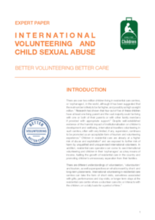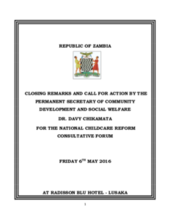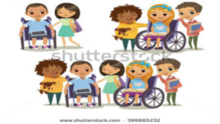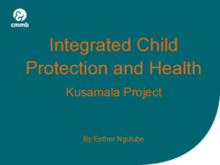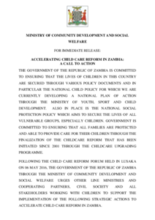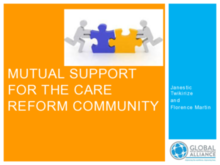Displaying 1001 - 1010 of 1627
Using the DFID sustainable livelihood approach, this qualitative study evaluated the social capital being accessed by adolescent girls transitioning from two institutions in Harare, Zimbabwe.
This country care review includes the care-related Concluding Observations adopted by the Committee on the Rights of Persons with Disabilities.
This paper provides an overview of international volunteering, or “voluntourism,” and its potential vulnerability to child sexual exploitation, particularly in residential care centres.
GHR Foundation has developed an initiative called the Sister Support initiative which engages and help build capacity of Catholic sisters in Uganda in providing care for vulnerable children and children living outside of family care.
The purpose of this consultancy shall be to conduct an assessment of the design of ECD integrated model and the extent to which the project achieved its intended outcomes.
This document includes the full closing remarks and call to action from the Zambia National Consultation to Accelerate Care Reform, presents a situational analysis of children with disabilities in Zambia and explains why disability should be at the core of care reform.
This presentation by the Ministry of Community Development and Social Welfare, given at the Zambia National Consultation to Accelerate Care Reform, presents a situational analysis of children with disabilities in Zambia and explains why disability should be at the core of care reform.
This presentation by Esther Ngulube of CMMB, given at the Zambia National Consultation to Accelerate Care Reform, outlines the objectives and activities of the Kusamala Project in Zambia and the key learning from this project.
This presentation by the Ministry of Community Development and Social Welfare, given at the Zambia National Consultation to Accelerate Care Reform, outlines eight strategic actions to be taken to accelerate care reform in Zambia.
This presentation by Janestic Twikirize and Florence Martin of the Global Social Service Workforce Alliance (GSSWA) and Better Care Network (BCN) respectively, given at the Zambia National Consultation to Accelerate Care Reform, describes the work of both organizations and highlights the importance of mutual supporting in advancing care reform efforts.


